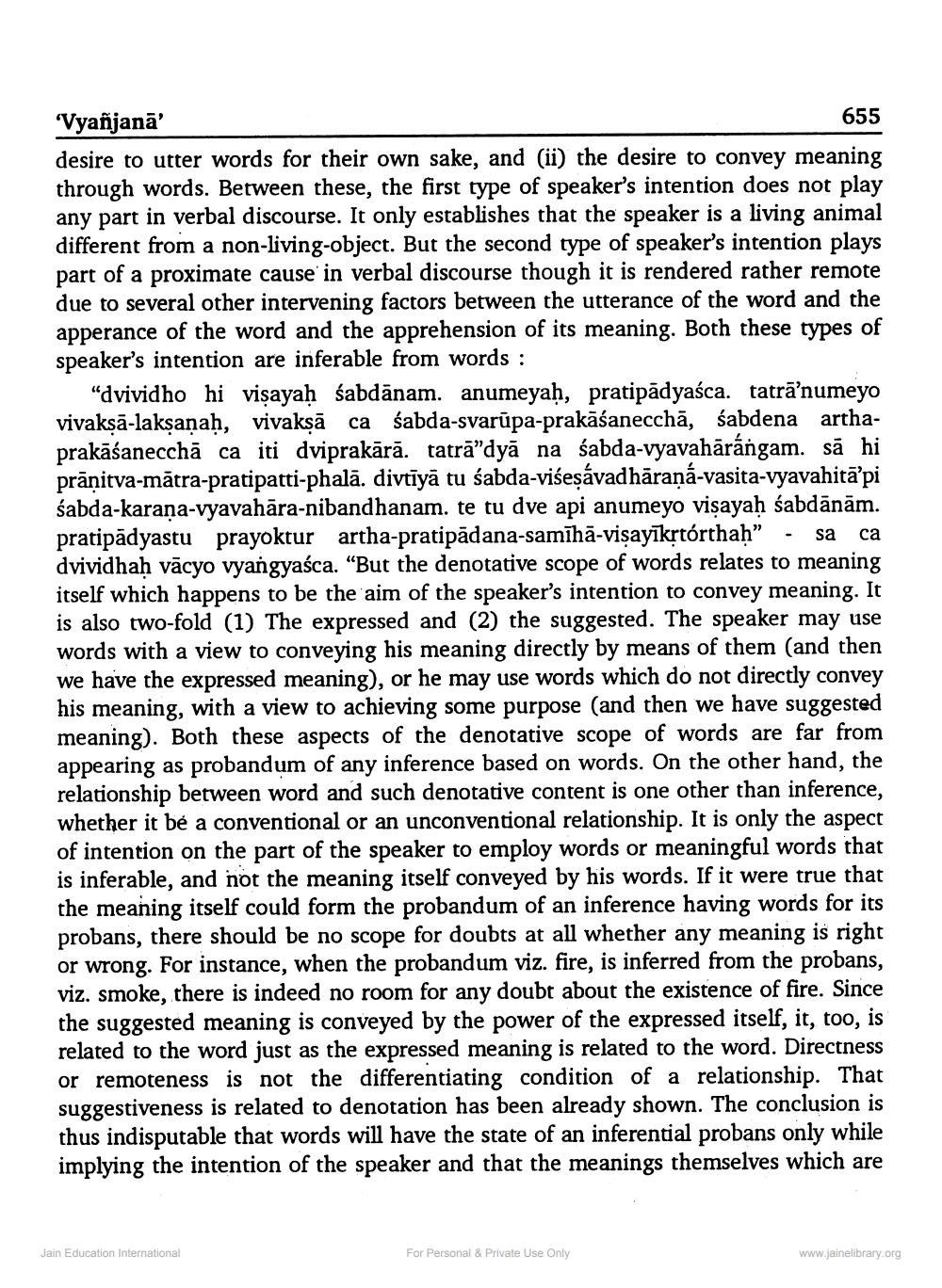________________
'Vyañjanā'
655 desire to utter words for their own sake, and (ii) the desire to convey meaning through words. Between these, the first type of speaker's intention does not play any part in verbal discourse. It only establishes that the speaker is a living animal different from a non-living-object. But the second type of speaker's intention plays part of a proximate cause in verbal discourse though it is rendered rather remote due to several other intervening factors between the utterance of the word and the apperance of the word and the apprehension of its meaning. Both these types of speaker's intention are inferable from words :
"dvividho hivisayah sabdānam. anumeyaḥ, pratipădyaśca. tatrā’numeyo vivaksā-laksanah, vivaksāca sabda-svarūpa-prakāśanecchā, śabdena arthaprakāśanecchā ca iti dviprakārā. tatrā”dyā na sabda-vyavahārángam. sa hi prānitva-mātra-pratipatti-phalā. divtīyā tu sabda-višeşávadhāraná-vasita-vyavahitā’pi śabda-karana-vyavahāra-nibandhanam. te tu dve api anumeyo visayaḥ śabdānām. pratipădyastu prayoktur artha-pratipādana-samīhā-visayīkrtórthah” - sa ca dvividhah vācyo vyangyaśca. “But the denotative scope of words relates to meaning itself which happens to be the aim of the speaker's intention to convey meaning. It is also two-fold (1) The expressed and (2) the suggested. The speaker may use words with a view to conveying his meaning directly by means of them (and then we have the expressed meaning), or he may use words which do not directly convey his meaning, with a view to achieving some purpose (and then we have suggested meaning). Both these aspects of the denotative scope of words are far from appearing as probandum of any inference based on words. On the other hand, the relationship between word and such denotative content is one other than inference, whether it be a conventional or an unconventional relationship. It is only the aspect of intention on the part of the speaker to employ words or meaningful words that is inferable, and not the meaning itself conveyed by his words. If it were true that the meaning itself could form the probandum of an inference having words for its probans, there should be no scope for doubts at all whether any meaning is right or wrong. For instance, when the probandum viz. fire, is inferred from the probans, viz. smoke, there is indeed no room for any doubt about the existence of fire. Since the suggested meaning is conveyed by the power of the expressed itself, it, too, is related to the word just as the expressed meaning is related to the word. Directness or remoteness is not the differentiating condition of a relationship. That suggestiveness is related to denotation has been already shown. The conclusion is thus indisputable that words will have the state of an inferential probans only while implying the intention of the speaker and that the meanings themselves which are
Jain Education International
For Personal & Private Use Only
www.jainelibrary.org




